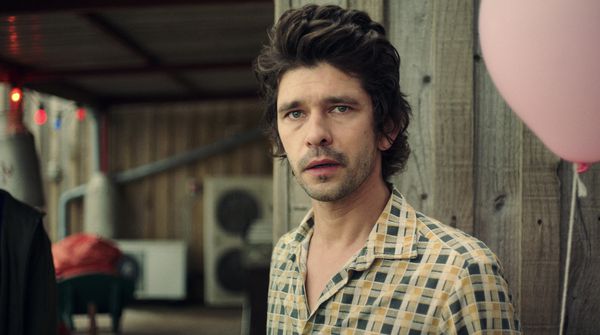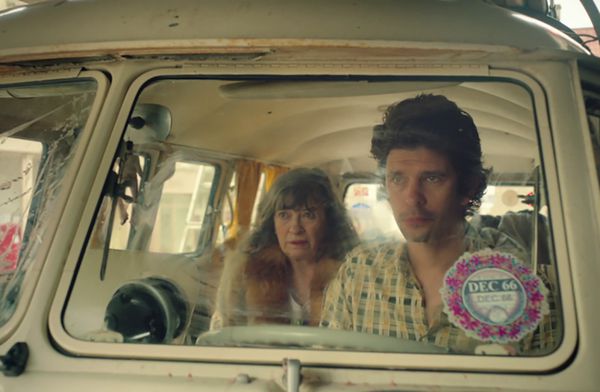Stuart, who is better known as an actor in the likes of Tinker Tailor Soldier Spy, says the film presented an opportunity to feel less “boxed in” as an actor.
He adds: “I just felt compelled to both write it and direct it. It's a very personal story and I knew I knew exactly how I wanted it to look and how I wanted it to feel. I've been wanting to direct for a long time. And so this felt like a good opportunity.”
The end result is “a love letter” to his “funny and archaic, kind, intelligent, naughty mum” who died at the beginning of the Covid pandemic.
Stuart has known Whishaw for a long time and it was the Paddington star who encouraged him to write the film. Bailey, for her part, loved the role of Marion when she read it.
“I thought it was a beautiful piece of writing,” she says “And the character seemed so clear. And so it was easy to get a hold of that. It was just a pleasure.”
Stuart, in return, has nothing but praise for his actors “I'd say one thing to Ben or Marion and they'd run with it. I'll probably never have it that good again, because they're such extraordinary actors. They’re such finely tuned artists that you just have to say a hint of an idea and they'll run with it and come up with a beautiful complex version of the crappy thing that you suggested.”
The film was shot in a location better known for crowds of people than the splendid isolation Danny finds himself in - Worthy Farm, where thousands of Glastonbury Festival fans gather each year.
 |
| Ben Whishaw as Danny. Tom Stuart: 'A lot of the filming was very cathartic for me and then a lot of the editing process was the same' Photo: 130 Elektra Films |
“I still can't believe that they let us do it because they never allow filming to happen there,” says Stuart. “But we were given permission to film on Worthy Farm itself, so then we just had the most insanely beautiful countryside to play with.It meant that we weren't having to close off roads and weren't having to worry about people walking, which gives the film that sort of quintessential in Britishness that it needs. The beautiful countryside, but also it allows these characters to exist in a bit of a liminal space, a bit of a dream-like space.”
He adds: “It was a very happy, centered, a happy environment. It was also personally important because Glastonbury has been a special place for me. And it is where I went. When I went off to my mom's funeral. It's the first place I went to sort of gather my thoughts and so I went to Glastonbury for three weeks in the aftermath. So it was beautiful. It had a lovely synergy about it.”
When it comes to the props used, the campervan certainly looked the part but it did throw up a few challenges.
“We all fell in love with it every, single one of us begged the owner to give it to us but, of course, he said no,” says Stuart with a laugh. He adds: “It was just ridiculously creaky, which gave the film a great atmosphere at times and at times caused a lot of trouble for sound because it was very atmospheric. But it becomes a character of its own right in the film really.”
Speaking about his grief, he adds that though it is an ongoing process, making the film has really helped.
“A lot of the filming was very cathartic for me and then a lot of the editing process was the same and now it's out in the world or beginning to be released in the world and I'm talking about it lots. It's an ongoing, cathartic experience, basically. And one of the most incredible things about this whole experience is connecting with audience members after they've seen it.
“They seek me out after each screening, we've had to tell me about their own sense of loss or their own bereavement. And I'd say that for me, as an artist, all that I've ever wanted to do is to connect with people and get them to talk about their own experiences. So that's joyful.”
But though this film was rooted in a very personal experience for the filmmaker, it’s certainly not the last time that he plans to step behind a camera.
“In terms of directing, I loved every single second of it. So it was like an absolute line in the sand really where I feel like there's no going back. Now I have to sort of write and direct my own stuff. And so like I'm lucky enough to have a couple of feature films that I'm writing. Hopefully, if they happen then I'll be directing them. So fingers crossed.”






















